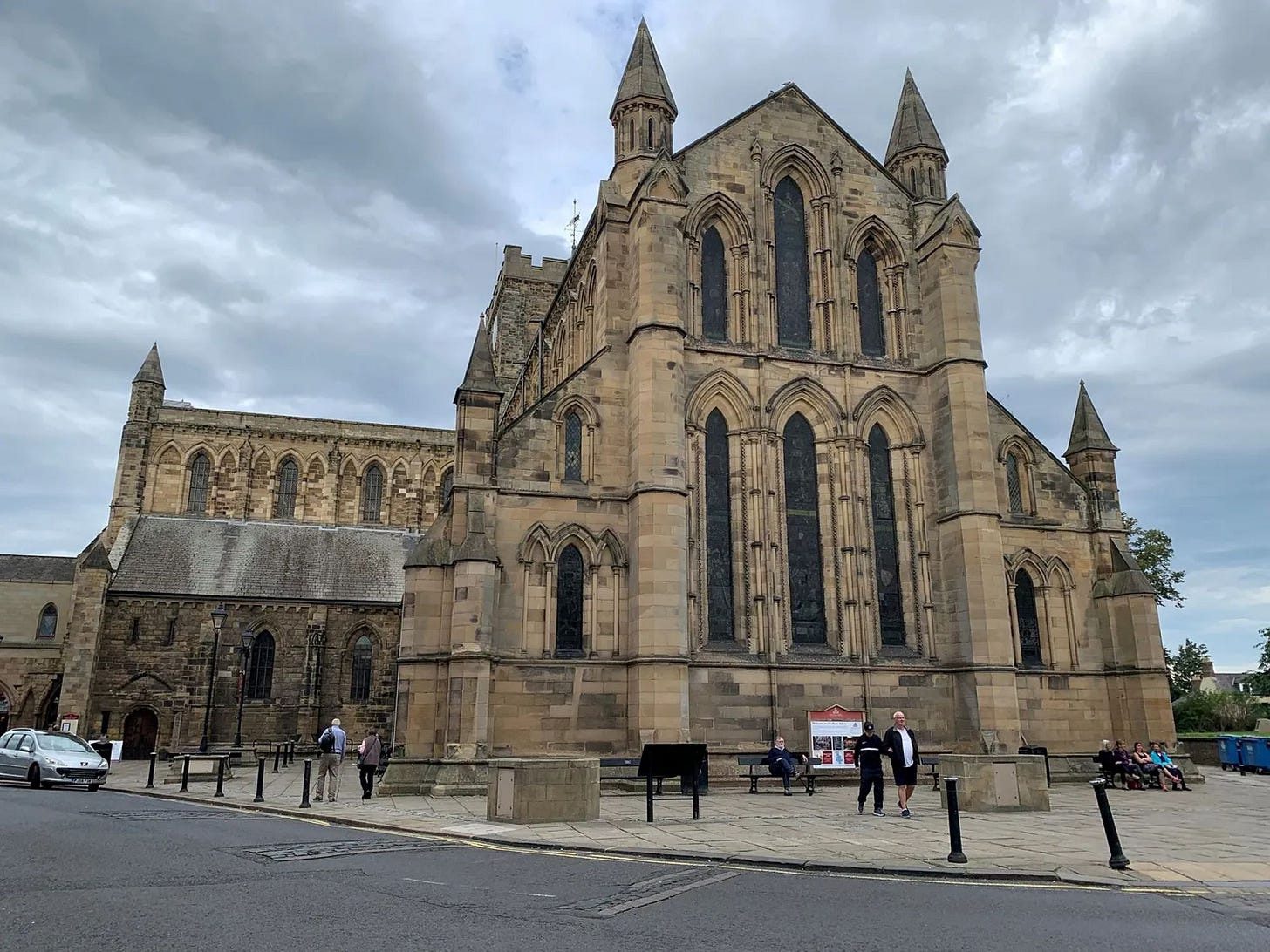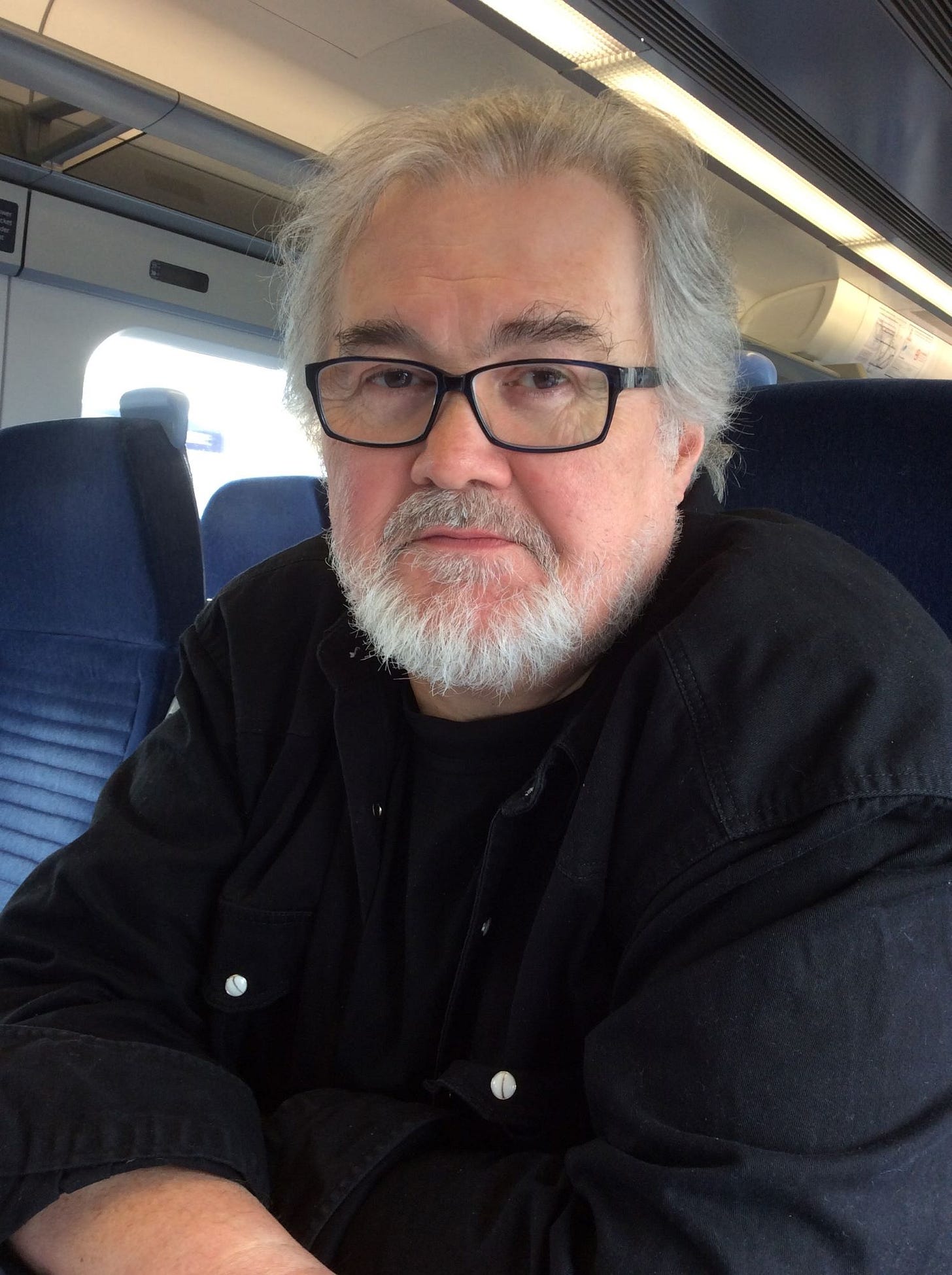Briggflatts reading a Hexham Abbey Festival highlight
Starring role for Bunting poem
A chance to hear Basil Bunting’s rarely heard masterpiece Briggflatts read by Sean O’Brien seems certain to be a highlight of September’s Hexham Abbey Festival.
The festival, now in its 72nd year, also includes performances by Kathryn Tickell & The Darkening, celebrated choral ensemble The Sixteen and the Hexham Abbey Festival Chorus and Orchestra.
But the afternoon reading on September 25 of Briggflatts, with harpsichord interludes by John Green, former director of music at the abbey, sounds particularly special.
“One of the most important poets of the 20th Century” is how Bunting is described in the festival billing. But how many people know of him or could recite a single line of his work?
He is one of those major figures of North East - and national and international - cultural life who tends to be rediscovered periodically.
He was born in Scotswood in 1900 into a Quaker family and was consequently jailed as a conscientious objector during the First World War. On his release he went to London and then spent many years overseas, becoming a friend of the American modernist poet Ezra Pound whose work influenced his own.
Bunting worked in Persia (modern day Iran) for British Military Intelligence during the Second World War but ended a varied and colourful career back in the North East, working as a sub-editor on the Newcastle Chronicle and Journal.
In the 1960s the then up-and-coming North East poet Tom Pickard urged him to start writing again and he produced Briggflatts, the long autobiographical poem for which he is best remembered and whose name recalls a Quaker meeting house in Cumbria which he visited as a boy.
It’s said he would work on the poem while returning home to the Tyne Valley on the train after his newspaper shifts in Newcastle.
The poem was published in 1966 when the influential critic Cyril Connolly called it “the finest long poem to have been published in England since TS Eliot’s Four Quartets”.
From its opening sentence – “Brag, sweet tenor bull,/ descant on Rawthey’s madrigal,/ each pebble its part/ for the fells’ late spring” - it reflects Bunting’s fondness for music and for reading aloud. Some of his poems he termed ‘sonatas’.
On one famous occasion he read Briggflatts in the Morden Tower, part of Newcastle historic city wall located at the back of Stowell Street, which Tom Pickard and then wife Connie established as a leading poetry venue.
Sean O’Brien, in editing The Firebox, a survey of post-war poetry in Britain and Ireland (published in 1998 by Picador), put Bunting in pole position, with excerpts from Briggflatts.
He called it “a major poem of love, time and loss” and wrote of Bunting: “His work stands boldly outside the mainstream of English poetry, retaining a modernist purity of intent and range of reference, while offering an engraved, uncluttered musicality… which is felt by many readers to be distinctly northern in spirit.”
Sean O’Brien is no slouch either, having produced several acclaimed poetry collections – along with plays and short stories - and won umpteen awards. He is also a respected critic and emeritus professor of creative writing at Newcastle University.
Bloodaxe Books, based in Hexham, published Basil Bunting’s Complete Poems in 2000 and, in 2009, an edition of Briggflatts which includes a CD recording of Bunting reading the poem in 1967.
The Hexham Abbey Festival reading – and interludes featuring sonatas by Dominico Scarlatti, as approved by Basil Bunting during his lifetime - takes place in the great hall of the abbey at 3pm on Thursday, September 25.
The festival, under joint artistic directors Martin Hughes and Denis McCaldin, starts at 6pm on September 24 with the choirs of Hexham Abbey singing choral evensong under Michael Haynes, director of music.
On September 25, Matthew Kelley, the abbey’s assistant director of music, will give an organ recital at 1pm before Sean O’Brien and John Green take the stage.
Kathryn Tickell & The Darkening perform at 8pm, bringing the day’s programme to a close.
The Sixteen will perform in the abbey at 7pm on September 26, celebrating 25 years of their Choral Pilgrimage.
For families with young children, the Saturday morning attraction (September 27, 11am) is a production of The Velveteen Rabbit, Margery Williams’s classic children’s story brought to life by Harmony’s Music Club.
That evening (7.30pm), Hexham Abbey Festival Chorus and Orchestra, directed by David Murray, will perform Mozart’s Requiem and two rarely heard works by Benjamin Britten.
On September 28 the abbey choirs will join for the festival choral eucharist at 10am.
The festival finale at 8pm at the Queen’s Hall will be An Evening with Cole Porter: Just one of Those Things performed by Clare McCaldin (mezzo-soprano), Paul Sheehan (baritone) and pianist Stephen Dickinson.
Programme and ticket details can be found on the Hexham Abbey Festival website or tel. (01434) 652477.






